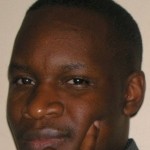Govt should promote herbal treatment too
By Abbey K. Semuwemba
27th Sept 2010
It’s human nature that people feel bad about disease. The feeling is the same whether they use Western medicine, witch doctors, Chinese herbal medicine etc. The only exception is Jehovah’s Witness whose religion forbids medicine.
It’s also worth mentioning that not everything herbalists advertise is nonsense. In my experience, herbal medicine using concentrates and extracts can be quite efficacious. The reason why some remedies from plants are used for so many diseases could be that they affect a common factor responsible for the diseases and disorders. You could take one for cough and end up treating several diseases in the system.
The World Health Organization estimates that up to 80 percent of people still rely on herbal remedies for their health care. And there are reasons for this: The high cost of drugs and drug resistance often leads to treatment failure. In fact, if herbal medicine was not readily available in Uganda, so many Ugandans would be dying.
In South Africa, traditional herbs have been used to treat pain or inflammation-related symptoms. South Africa has the richest plant biodiversity in the world, many of which are medicinally useful. They treat diabetes, tumours, stomach pain, rheumatism etc.
In USA, Mormons are into natural healing and natural medicine. Partly as a consequence, many vitamin and herbal medicine companies are located in Utah. In Germany, consumers can buy standardized over-the-counter herbal preparations that are often cheaper and more effective than synthetics.
I also read an article about an HIV herbal treatment in Iran. In that article, the Iranians didn’t say the treatment would cure AIDS but that it would control its symptoms if used alongside other drugs.
Today, forty to fifty percent of pharmaceutical drugs are plant-derived. Pharmaceutical houses are beating the bushes in South America and Africa in search of botanicals they can analyze chemically. Herbal Plants contain a wide variety of natural secondary compounds.
Among the secondary compounds are the flavonoids. Flavonoids are present in high concentrations in flowers, seeds, leaves, herbs, fruits, stems, bulbs, tea, wine, vegetables and other food sources. Below are some of the examples that show how herbs supplement general or contemporary medicine.
Early in the century, a German doctor by the names of Albert Schweitzer established a medical mission in Gabon. He forged a relationship with a local doctor whom Schweitzer addressed as “mon chère collègue”. Schweitzer explained that he admired the witch doctor’s ability to deal with mental illness.
So he sent him patients, just as the witch doctor routinely sent Schweitzer patients who would benefit from Western medicine. The two doctors never understood each other’s therapeutic systems but respected the results.
The Germans discovered that Echinacea, a remedy of Amerindians from the western plains, had antifungal, antibacterial, and antiviral properties. Synthetic antibiotics only had antibacterial properties. Experiments with root extracts demonstrated that Echinacea is an immune stimulant as well.
Finally, the Chinese practice of acupuncture! It is an interesting discovery that several scientists had dismissed until former US President Richard Nixon made his surprise visit to China. When a journalist in Nixon’s entourage underwent an emergency appendectomy and lauded Chinese acupuncture for pain relief, the few curious American doctors who actually investigated the ancient treatment reported positive results.
In the presence of Western doctors, Chinese doctors anesthetized a woman with acupuncture and then performed surgery on the patient while she was awake and at ease. A decade after Nixon visited China, veterinarians reported they had successfully treated animals with acupuncture.
On November 5th 1997, a federal advisory panel of non-governmental medical experts announced its strong support for acupuncture. The twelve-member committee was enthusiastic about acupuncture’s ability to relieve pain and nausea with minimal side-effects.
The Department of Botany at Makerere University has also done a lot of research around this area. Between January 2000 and September 2003, they did a study [around Queen Elizabeth Biosphere Reserve in Bushenyi and Kasese] that documented medicinal plants used to treat fungal and bacterial infections. The results make for interesting reading.
I therefore think it would be good if the government put herbalists through some form of formal training [like the Chinese have done] to improve on the grey areas of their practice which worry some people. That said, I also think we should concurrently fight traditional healing practices that use human body parts. In South Africa, this practice has led to a lot of “Muti murders”. “Muti” is a Zulu word for medicine. In Buganda, these kind of murders have been branded ‘Ekisadaka’; meaning child sacrifice. In Tanzania, there are people hunting the albinos for purposes of making traditional medicine. END. If it’s Monday, it’s Uganda Correspondent. Never miss out again!
Abbey Semuwemba is a graduate student of Public Health Promotion in the UK
![]()


